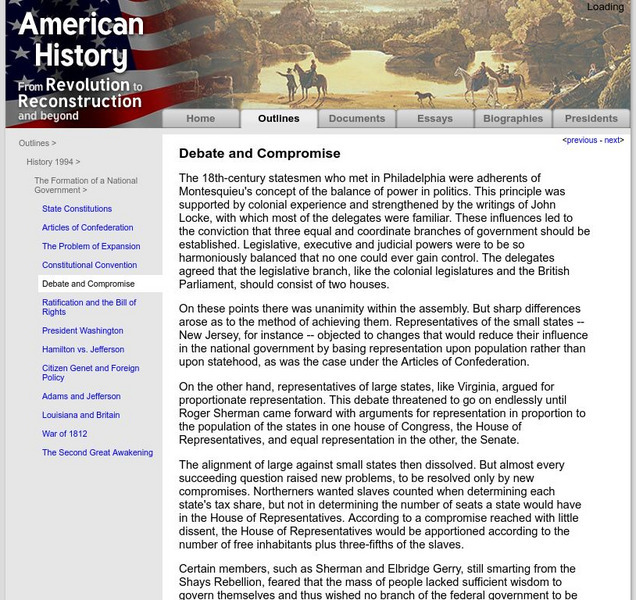Curated by
ACT
The 18th-century statesmen who met in Philadelphia were adherents of Montesquieu's concept of the balance of power in politics. This principle was supported by colonial experience and strengthened by the writings of John Locke, with which most of the delegates were familiar. These influences led to the conviction that three equal and coordinate branches of government should be established. Legislative, executive and judicial powers were to be so harmoniously balanced that no one could ever gain control. The delegates agreed that the legislative branch, like the colonial legislatures and the British Parliament, should consist of two houses.
3 Views
4 Downloads
Additional Tags
Classroom Considerations
- This resource is only available on an unencrypted HTTP website.It should be fine for general use, but don’t use it to share any personally identifiable information

